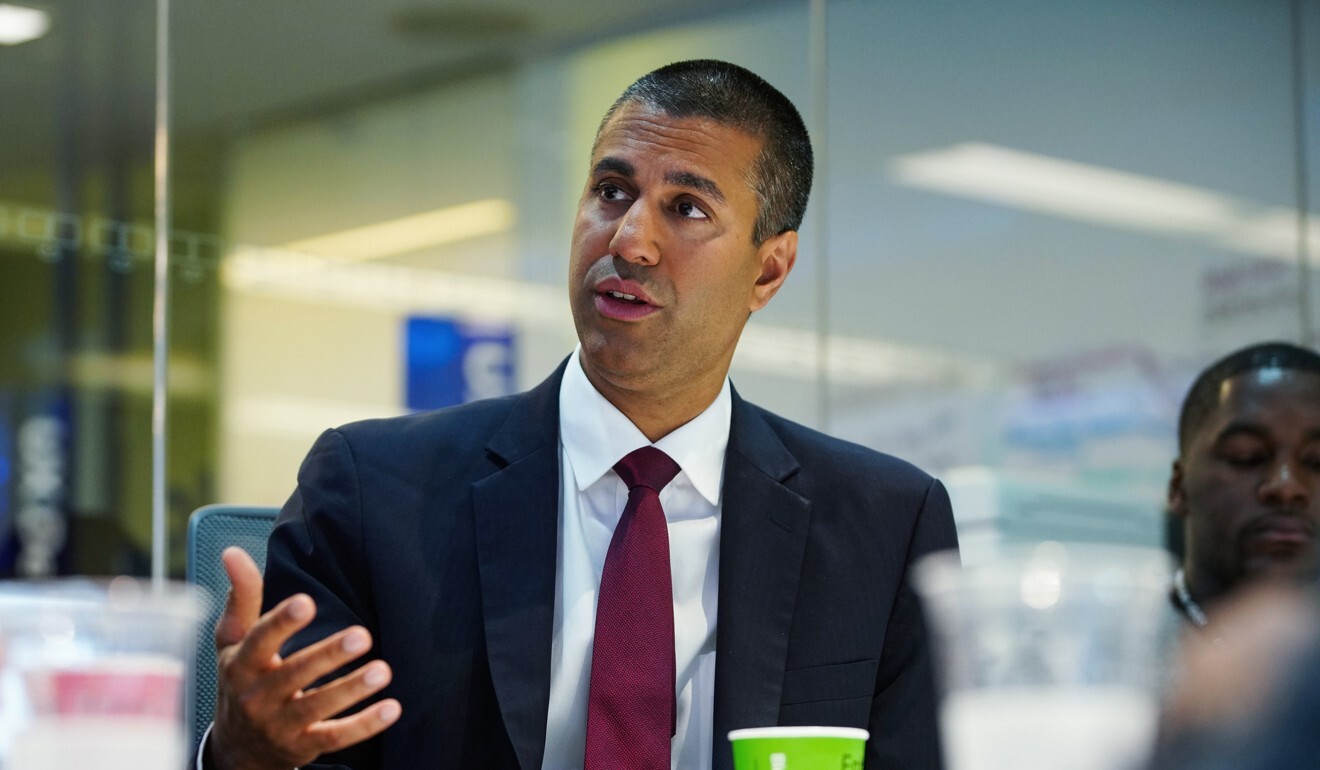
US lawmakers create US$1.9 billion fund to help carriers remove Huawei and ZTE equipment from their systems
- Covid-19 relief package includes subsidies to ‘rip and replace’ equipment deemed to be threats to national security
- Funding follows moves by the US Federal Communications Commission to require the removal of such systems

Tucked into the Covid-19 relief package that the US Congress passed late on Monday night was US$1.9 billion in subsidies for US telecoms carriers to remove and replace Huawei Technologies and ZTE Corp networks and equipment that have been deemed national security threats.
The US Federal Communications Commission (FCC) first raised the idea early last year to remove and replace those systems, but since then, the affected carriers – mostly small companies in rural areas – warned that such a move could upend their businesses.
Two weeks ago, the agency finalised rules requiring US carriers to remove Huawei equipment, shortly after it designated the Chinese telecoms giant a national security threat.
Washington is wary that Huawei and ZTE gear might have bugs that would enable the companies to transfer US data and information to Beijing. Both companies have denied the allegations repeatedly.
Ajit Pai, the FCC chairman, praised congressional leaders on Monday for “working together in a bipartisan manner to reach agreement on this consequential legislation that will help protect our national security, close the digital divide, advance tele-health, and promote American leadership in 5G”.
The US$1.9 billion Congress approved “will strengthen both network security and our national security”, Pai said.

The relief package now heads to US President Donald Trump, who is expected to sign it into law in the coming days.
The funding builds on a law Trump signed in March barring US carriers from tapping an US$8.3 billion fund to buy network equipment from Chinese companies.
The FCC estimated that several dozen rural carriers had used that fund to purchase equipment from Huawei or ZTE. The agency estimated that it cost a carrier on average about US$40 million to US$45 million to replace the equipment.
The new funding “provides these small rural carriers the ability to go out to capital markets to finance their needs with the assurance that funding is available for reimbursement to pay off these loans”, said Carri Bennet, general counsel of the Rural Wireless Association, a Washington-based trade association.
John Nettles, president of Pine Belt Communications, a telecoms service provider in Alabama, said the congressional action meant he could “confidently move forward after over two years of uncertainty that has stymied our ability to provide broadband services, especially during the Covid pandemic”.
“We can pull the trigger on our vendor contracts and issue pent-up purchase orders,” he added.
For most carriers, removing Huawei and ZTE gear will prove to be messy. Steven Barry, who heads the Competitive Carriers Association, a trade group for rural mobile carriers, told a congressional hearing this year that rural carriers were “essentially attempting to rebuild the aeroplane in mid-flight” by having to remove and replace network equipment.

02:27
UK bans Huawei from 5G network after US sanctions
A report this month by the Peterson Institute of International Economics contends that simply cutting off Chinese telecoms companies from the supply chain could be “accompanied by considerable unintended consequences” hurting the US carriers.
Huawei has objected to the exclusions and restrictions, calling it an “overreach” to “force removal of our products from telecommunications networks”.
“This overreach puts US citizens at risk in the largely underserved rural areas – during a pandemic – when reliable communication is essential,” a company spokesperson said.
The passage of funding on Monday dealt another blow to the Chinese telecoms giants that have been caught in the crossfire of the US-China trade and tech wars since 2018.
Urged on by the US, which pressed its concerns about the national security threat the companies allegedly pose, other countries including Britain, Australia, New Zealand and Japan have excluded them from taking part in developing their countries’ 5G networks as well.
Last week, an appeals court in Sweden upheld an earlier ruling to exclude the companies from its infrastructure on national security grounds. The Swedish Post and Telecom Authority said it would resume its next-generation telecoms auctions in January without participation from Huawei or ZTE.